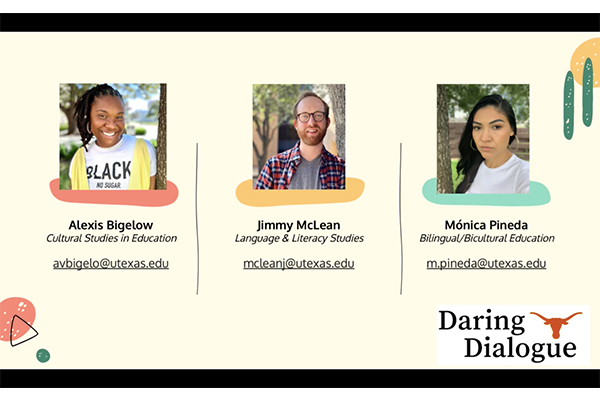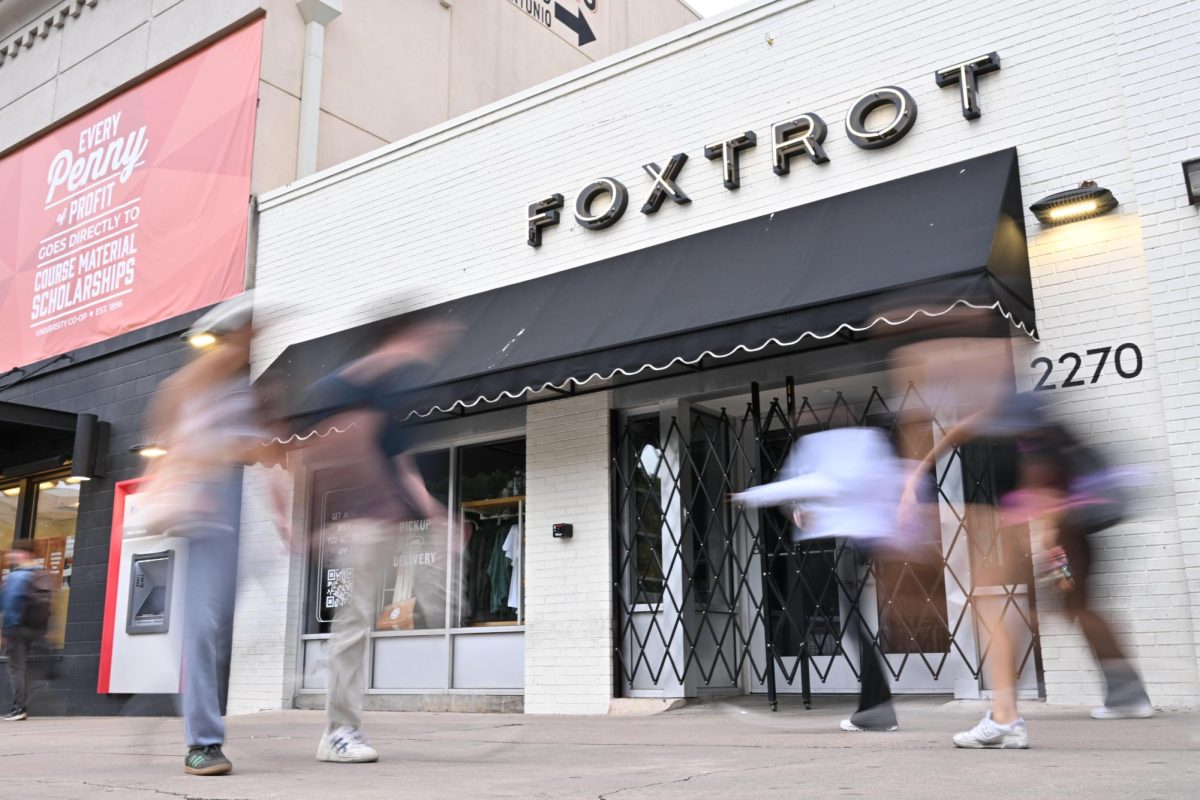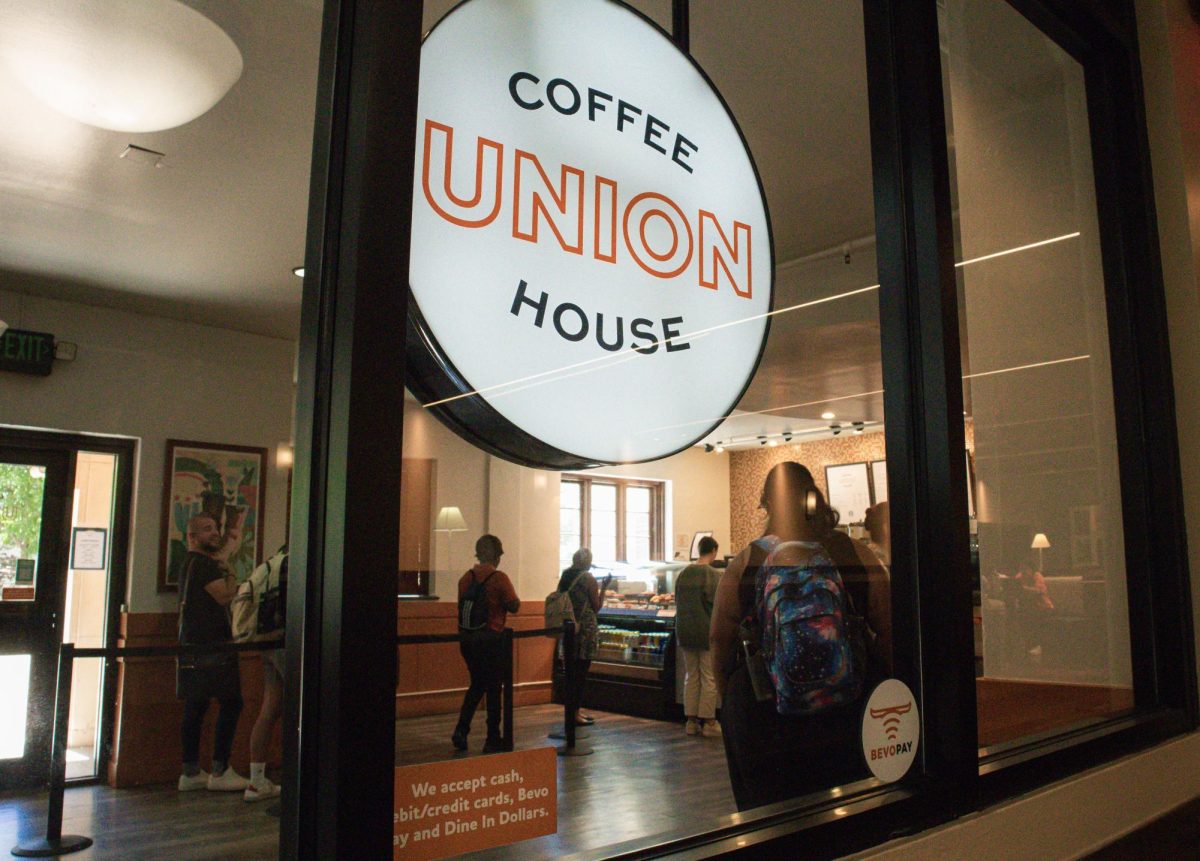Daring Dialogue, a new learning program aimed at teaching College of Education students about race relations within the classroom, will open virtually in the spring semester.
Education graduate students Alexis Bigelow, Jimmy McLean and Mónica Pineda created Daring Dialogue after witnessing racial biases during their experience as classroom teachers and field supervisors for undergraduates.
“I felt there was a need to talk about how our everyday language and ways of being can be racist,” Pineda said. “If we don't offer the opportunity to have that conversation, it’s hard to have the expectation that we will all be aware and conscious of how we hurt others.”
Daring Dialogue is an eight-session program where future educators can discuss race and understand race relations within the classroom, Pineda said. The sessions focus on intersectionality, color blindness, microaggressions and stereotypes.
McLean said while students touch on race relations in their coursework, they struggle to apply their learning to the classroom.
“In the field we were seeing a lot of disconnect,” McLean said. “We’re encouraging our teachers to question commonplace racist practices, but they’re in a difficult position in the field to do that. (Daring Dialogue) can give us a space to think about that more.”
The Daring Dialogue learning sessions will be grouped by race, and the groupings will depend on the demographics of who signs up, McLean said.
“Participants will (be) split into groups based on how they identify racially,” McLean said. “We expect to have a group of white participants, a group of Black/African American participants, Latinx participants and Asian American/Pacific Islander.”
Bigelow said the groups will be split by race to allow both people of color and white people safe spaces to talk about their experiences.
“It is a safer space for white people to learn, unlearn and unpack biases and stereotypes,” Bigelow said. “In the people of color group, they are also learning and unlearning, but it is also a place of fellowship and respite.”
While the ideas behind Daring Dialogue were conceived last fall, Pineda said the Black Lives Matter movement and recent protests increased the relevance of the initiative. She said the College of Education administration is in support of Daring Dialogue. Bridget Glaser, director of communications for the College of Education, said the program is a part of the college.
“It escalated the sense of emergency,” Pineda said. “These events allowed the people around us to say, ‘You’re right, this is needed.’ (The College of Education) is actively trying to do as much as they can, and this is a space that needs attention.”
McLean said they plan to promote Daring Dialogue through social media, email and word-of-mouth. McLean said they hope to use their connection with undergraduate students as teaching assistants and lecturers to recruit people into the program. Enrollment details are to be determined, McLean said.
“We hope people will understand their positionality and how that affects student learning and student relationships,” Bigelow said. “And better, pick up practices that are anti-racist.”





















